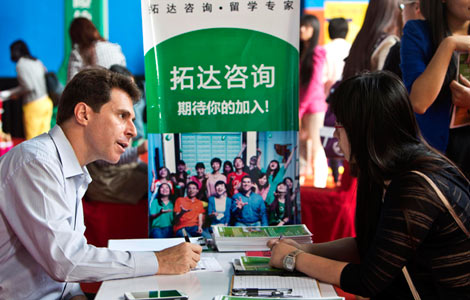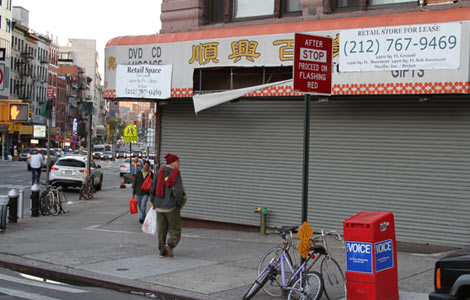CSRC again denies plans for intl board
Updated: 2013-10-17 11:23
(Agencies)
|
||||||||
China's securities regulator denied on Wednesday that foreign companies will be allowed to issue shares in the new Shanghai free trade zone, as reform hopes escalate ahead of a key Communist Party November meeting.
The Wall Street Journal reported late on Monday, citing two unidentified sources with direct knowledge of the matter, that China may allow foreign companies registered in the free trade zone to sell shares in a controlled environment that might serve as a test for the long-discussed introduction of the "international board" on the Shanghai main stock exchange.
"We wish to reiterate that there are no plans to allow qualified foreign companies to issue shares in the Shanghai free trade zone or anything similar in our upcoming policy document on the matter," the China Securities Regulatory Commission (CSRC) said on its official twitter-like Weibo account.
The statement follows a similar report last Thursday on the website of CSRC-run Securities Times newspaper, which was swiftly followed by an official denial just hours later.
Plans for an international board which would allow foreign companies to list in the mainland were first mooted in 2009 as part of efforts to push Shanghai as a global financial hub by 2020, but the unstable state of the A-share market put paid to those plans.
In fact, previous suggestions by regulators that the international board's launch was imminent have caused brief stock market routs. Chinese investors bailed out of domestic stocks on the assumption that foreign tickers would steal investment capital from Chinese companies.
This time around, however, there appeared to be little direct stock market reaction.
At the launch of the new free-trade zone in Shanghai at the end of September, Dai Haibo, deputy director of the zone administrative committee, said foreigners and Chinese in the zone would be allowed to invest funds directly for the first time.
He did not say whether they would also be subject to a quota.
Currently, foreign and Chinese investors have only been allowed to invest cross-border by buying into funds regulated through either the Qualified Foreign Institutional Investor (QFII) program or the Qualified Domestic Institutional Investor (QDII) program, both of which are restricted by quotas.
The State Council, China's cabinet, had said last month that it would open up its largely sheltered services sector to foreign competition in the zone and use it as a test bed for bold financial reforms, including a convertible yuan and liberalised interest rates.
The Chinese Communist Party is due to hold its third plenary session of the party's top body sometime in November.
This has been billed as a watershed for China's development, just like one in 1978 when Deng Xiaoping unveiled his historic reforms to open China to the rest of the world or in 1993 when the party endorsed a socialist market economy.
Most Viewed
Editor's Picks

|

|

|

|

|

|
Today's Top News
US debt impasse ending, Obama to sign bill
Facebook goes fishing in China
Michigan auto czar leading trade trip to China
Yuan gains the most in 20 years
Tibet avalanche claims 4
First interprovince subway route opens
US expert finds job 'rewarding'
Trending news across China
US Weekly

|

|














